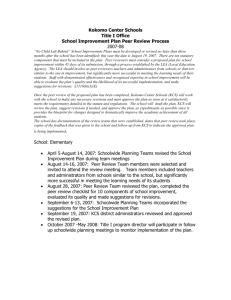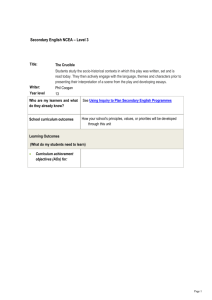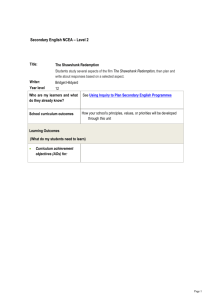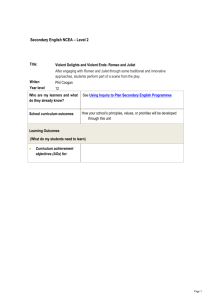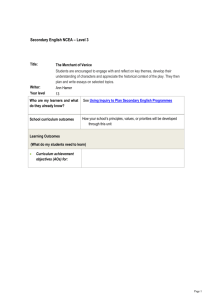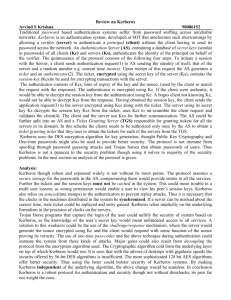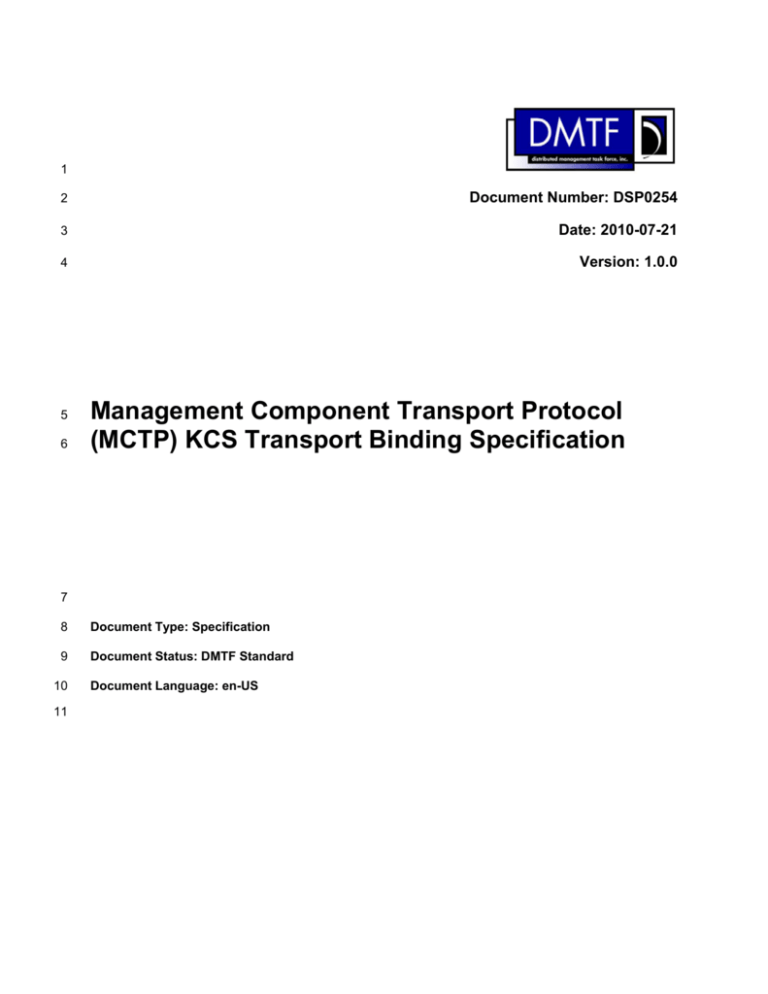
1
2
Document Number: DSP0254
3
Date: 2010-07-21
4
Version: 1.0.0
5
6
Management Component Transport Protocol
(MCTP) KCS Transport Binding Specification
7
8
Document Type: Specification
9
Document Status: DMTF Standard
10
11
Document Language: en-US
MCTP KCS Transport Binding Specification
DSP0254
12
Copyright Notice
13
Copyright © 2010 Distributed Management Task Force, Inc. (DMTF). All rights reserved.
14
15
16
17
DMTF is a not-for-profit association of industry members dedicated to promoting enterprise and systems
management and interoperability. Members and non-members may reproduce DMTF specifications and
documents, provided that correct attribution is given. As DMTF specifications may be revised from time to
time, the particular version and release date should always be noted.
18
19
20
21
22
23
24
25
26
27
28
29
30
Implementation of certain elements of this standard or proposed standard may be subject to third party
patent rights, including provisional patent rights (herein "patent rights"). DMTF makes no representations
to users of the standard as to the existence of such rights, and is not responsible to recognize, disclose,
or identify any or all such third party patent right, owners or claimants, nor for any incomplete or
inaccurate identification or disclosure of such rights, owners or claimants. DMTF shall have no liability to
any party, in any manner or circumstance, under any legal theory whatsoever, for failure to recognize,
disclose, or identify any such third party patent rights, or for such party’s reliance on the standard or
incorporation thereof in its product, protocols or testing procedures. DMTF shall have no liability to any
party implementing such standard, whether such implementation is foreseeable or not, nor to any patent
owner or claimant, and shall have no liability or responsibility for costs or losses incurred if a standard is
withdrawn or modified after publication, and shall be indemnified and held harmless by any party
implementing the standard from any and all claims of infringement by a patent owner for such
implementations.
31
32
33
For information about patents held by third-parties which have notified the DMTF that, in their opinion,
such patent may relate to or impact implementations of DMTF standards, visit
http://www.dmtf.org/about/policies/disclosures.php.
34
I2C is a trademark of Philips Semiconductors.
35
36
PCI-SIG, PCIe, and the PCI HOT PLUG design mark are registered trademarks or service marks of PCISIG.
37
All other marks and brands are the property of their respective owners.
38
2
DMTF Standard
Version 1.0.0
DSP0254
MCTP KCS Transport Binding Specification
39
CONTENTS
40
41
42
43
44
45
46
47
48
49
50
51
52
53
54
55
56
57
58
59
60
61
62
63
64
65
66
67
68
69
Forward ......................................................................................................................................................... 5
Introduction ................................................................................................................................................... 6
1
Scope .................................................................................................................................................... 7
2
Normative References........................................................................................................................... 7
3
Terms and Definitions ........................................................................................................................... 7
4
Symbols and Abbreviated Terms .......................................................................................................... 8
5
Conventions .......................................................................................................................................... 8
5.1 Reserved and Unassigned Values ............................................................................................. 8
5.2 Byte Ordering.............................................................................................................................. 8
6
MCTP over KCS Transport ................................................................................................................... 8
6.1 MCTP Packet Encapsulation ...................................................................................................... 9
6.2 Error Handling........................................................................................................................... 11
6.3 Interface Related Data .............................................................................................................. 11
6.3.1 SMBIOS Management Controller Host Interface Structure Type 42........................... 11
6.3.2 PCI / PCIe Class Codes .............................................................................................. 13
6.4 Supported Media....................................................................................................................... 13
7
Transport-Specific Commands............................................................................................................ 14
7.1 Register Endpoint ..................................................................................................................... 14
7.2 Get MCTP Packet ..................................................................................................................... 14
7.3 Enable MCTP SMS_ATN ......................................................................................................... 15
7.4 Transport Strings ...................................................................................................................... 15
8
Incoming and Outgoing KCS MCTP Packets ..................................................................................... 15
8.1 Get Incoming MCTP Packet Examples .................................................................................... 16
8.1.1 Polling Example ........................................................................................................... 16
8.1.2 SMS_ATN Example ..................................................................................................... 16
9
MCTP KCS Packet Timing Requirements .......................................................................................... 17
10 MCTP KCS Control Message Timing Requirements .......................................................................... 17
ANNEX A (informative) Notation and Conventions................................................................................... 19
ANNEX B (informative) Change Log......................................................................................................... 20
Version 1.0.0
DMTF Standard
3
MCTP KCS Transport Binding Specification
DSP0254
70
Figures
71
72
Figure 1 – MCTP over KCS Packet Format.................................................................................................. 9
73
Tables
74
75
76
77
78
79
80
81
82
83
84
Table 1 – MCTP over KCS Packet Header Field Descriptions................................................................... 10
Table 2 – Management Controller Device Information: Interface Specific Data for KCS ........................... 11
Table 3 – Byte-aligned I/O Mapped Register Address Examples............................................................... 12
Table 4 – 32-bit Aligned I/O Mapped Register Address Examples............................................................. 12
Table 5 – Supported Media......................................................................................................................... 13
Table 6 – Transport-Specific MCTP Control Command Number ............................................................... 14
Table 7 – Register Endpoint Message Format ........................................................................................... 14
Table 8 – Get MCTP Packet Message Format ........................................................................................... 14
Table 9 – Enable MCTP SMS_ATN............................................................................................................ 15
Table 10 – Timing Specifications for MCTP Packets on KCS .................................................................... 17
Table 11 – Timing Specifications for MCTP Control Messages on KCS.................................................... 17
4
DMTF Standard
Version 1.0.0
DSP0254
MCTP KCS Transport Binding Specification
Forward
85
86
87
The Management Component Transport Protocol (MCTP) KCS Transport Binding Specification
(DSP0254) was prepared by the PMCI Subgroup of the Pre-OS Working Group.
88
89
DMTF is a not-for-profit association of industry members dedicated to promoting enterprise and systems
management and interoperability. For information about the DMTF, see http://www.dmtf.org.
Version 1.0.0
DMTF Standard
5
MCTP KCS Transport Binding Specification
Introduction
90
91
92
The Management Component Transport Protocol (MCTP) defines a communication model intended to
facilitate communication between:
93
•
Management controllers and other management controllers
94
•
Management controllers and management devices
95
96
97
98
99
100
101
DSP0254
The communication model includes a message format, transport description, message exchange
patterns, and configuration and initialization messages.
The MCTP Base Specification (DSP0236) describes the protocol and commands used for communication
within and initialization of an MCTP network. Associated with the MCTP Base Specification are transportbinding specifications that define how the MCTP base protocol and MCTP control commands are
implemented on a particular physical transport type and medium, such as SMBus/I2C, PCI Express™
(PCIe) Vendor Defined Messaging, KCS, Serial, and so on.
102
6
DMTF Standard
Version 1.0.0
DSP0254
MCTP KCS Transport Binding Specification
Management Component Transport Protocol (MCTP) KCS
Transport Binding Specification
103
104
105
1
Scope
106
107
This document provides the specifications for the Management Component Transport Protocol (MCTP)
transport binding for Keyboard Controller Style (KCS) interface.
108
2
109
110
111
The following referenced documents are indispensable for the application of this document. For dated
references, only the edition cited applies. For undated references, the latest edition of the referenced
document (including any amendments) applies.
112
113
DMTF DSP0134, System Management BIOS Reference Specification 2.6,
http://www.dmtf.org/standards/published_documents/DSP0134_2.6.pdf
114
115
DMTF DSP0236, Management Component Transport Protocol (MCTP) Base Specification 1.0,
http://www.dmtf.org/standards/published_documents/DSP0236_1.0.pdf
116
117
DMTF DSP0239, Management Component Transport Protocol (MCTP) IDs and Codes Specification 1.0,
http://www.dmtf.org/standards/published_documents/DSP0239_1.0.pdf
118
119
DMTF, DSP0256, Management Component Transport Protocol (MCTP) Host Interface Specification 1.0,
http://www.dmtf.org/standards/published_documents/DSP0256_1.0.pdf
120
121
IPMI Consortium, Intelligent Platform Management Interface Specification, v1.5 Revision 1.1 February 20,
2002, http://download.intel.com/design/servers/ipmi/IPMIv1_5rev1_1.pdf
122
123
PCI-SIG, PCI Local Bus Specification v3.0, PCI v3.0, February 3, 2004,
http://www.pcisig.com/specifications/conventional
124
125
SBS Implementers Forum, System Management Bus (SMBus) Specification v2.0, SMBus, August 2000,
http://www.smbus.org/specs/smbus20.pdf
126
3
127
128
Refer to DSP0236 for terms and definitions that are used across the MCTP specifications. For the
purposes of this document, the following terms and definitions apply.
129
130
131
132
133
134
135
3.1
Keyboard Controller Style Interface (KCS)
A set of bit definitions, and operation of the registers typically used in keyboard microcontrollers and
embedded controllers. The term ”Keyboard Controller Style” reflects that the register definition was
originally used as the legacy “8742” keyboard controller interface in PC architecture computer systems.
This interface is available built-in to several commercially available microcontrollers. Data is transferred
across the KCS interface using a per-byte handshake.
Normative References
Terms and Definitions
Version 1.0.0
DMTF Standard
7
MCTP KCS Transport Binding Specification
DSP0254
136
137
138
3.2
Logical Endpoint
An endpoint that can be represented by system firmware or system software.
139
4
140
141
Refer to DSP0236 for symbols and abbreviated terms that are used across the MCTP specifications. For
the purposes of this document, the following additional symbols and abbreviated terms apply.
142
143
144
4.1
KCS
Keyboard Controller Style Interface
145
146
147
4.2
LUN
Logical Unit Number
148
149
150
4.3
MCTP
Management Component Transport Protocol
151
152
153
4.4
PEC
Packet Error Code
154
5
155
The conventions described in the following clauses apply to this specification.
156
5.1
157
158
Unless otherwise specified, any reserved, unspecified, or unassigned values in enumerations or other
numeric ranges are reserved for future definition by the DMTF.
159
160
Unless otherwise specified, numeric or bit fields that are designated as reserved shall be written as 0
(zero) and ignored when read.
161
5.2
162
163
Unless otherwise specified, byte ordering of multi-byte numeric fields or bit fields is "Big Endian" (that is,
the lower byte offset holds the most significant byte, and higher offsets hold lesser significant bytes).
164
6
165
166
167
168
169
The KCS interface is a set of bit definitions, and operation of the registers that is typically used in
keyboard microcontrollers. The term ”Keyboard Controller Style” reflects the fact that the host interface
was used as the legacy keyboard controller interface in PC architecture computer systems. This interface
is available built-in to several commercially available microcontrollers. Data is transferred across the KCS
interface using a per-byte handshake.
8
Symbols and Abbreviated Terms
Conventions
Reserved and Unassigned Values
Byte Ordering
MCTP over KCS Transport
DMTF Standard
Version 1.0.0
DSP0254
MCTP KCS Transport Binding Specification
170
171
172
The MCTP over KCS transport binding defines how MCTP packets are delivered over a physical KCS
interface using KCS transactions. Timing specifications for bus and MCTP control operations are also
given.
173
174
175
The binding has been designed to be able to share the same bus as devices communicating using earlier
KCS management protocols such as IPMI. For a more detailed explanation of the KCS interface with
flowcharts see Intelligent Platform Management Interface Specification, Chapter 9.
176
177
178
This specification covers MCTP over KCS transport binding only. For further description of the MCTP host
interface refer to DSP0256, Management Component Transport Protocol (MCTP) Host Interface
Specification.
179
6.1
180
181
182
183
184
185
186
187
188
189
MCTP Packet Encapsulation for KCS shall support the baseline MTU-sized MCTP packet. For example, a
baseline transmission unit of 64 bytes will result in a KCS message size of 64 + 3 (KCS header length) +
4 (MCTP transport length) + 1 (KCS PEC) = 72 bytes. MCTP over KCS packets use the first 3 data bytes
of the KCS transaction to make up the KCS packet header. The first byte maps to a Group Extension Net
Fn / LUN code of 0xB0 as defined in Intelligent Platform Management Interface Specification, section 5.1.
The second byte maps to the defining body of DMTF = 0x01. This is followed by a byte count. Bytes 0:2
and byte N represent the medium specific data. This includes the KCS medium specific header (bytes 0:
2) and the medium specific trailer (byte n). Bytes 3:6 in Figure 1 represent fields defined by the Base
MCTP Specification and include the MCTP transport header. Bytes 7: (N-1) represent the MCTP packet
payload which includes the MCTP message header and message data.
MCTP Packet Encapsulation
190
191
Figure 1 – MCTP over KCS Packet Format
192
193
194
195
196
The fields labeled “KCS Medium-Specific Header” and “KCS Medium-Specific Trailer” are specific to
carrying MCTP packets using KCS. The fields labeled “MCTP Transport Header” and “MCTP Packet
Payload” are common fields for all MCTP packets and messages and are specified in MCTP. This
document defines the location of those fields when they are carried over KCS. This document also
specifies the medium-specific use of the MCTP “Hdr Version” field.
197
Table 1 lists the KCS medium-specific fields as well as common fields and field values.
Version 1.0.0
DMTF Standard
9
MCTP KCS Transport Binding Specification
198
DSP0254
Table 1 – MCTP over KCS Packet Header Field Descriptions
Field
Network
Function
Field
Size
Description
5 bits
Network Function: Group Extension = 101100b = 0x2C
NOTE: MCTP does not use odd network function 0x2D.
LUN
2 bits
Logical Unit Number : Set to 00b for all KCS over MCTP packets
Defining Body
1 byte
Defining Body = DMTF Pre-OS Working Group = 0x01
Byte Count
1 byte
Byte Count: Byte count for the KCS transaction that is carrying the MCTP packet
content.
This value is the count of bytes that follow the Byte Count field up to, but not including,
the PEC byte. For example, if the MCTP packet payload length (starting with byte 7) is
64 bytes then the value in the Length field would be 68. (The count of 68 accounts for
64 bytes of MCTP packet payload plus the four bytes [bytes 3 through 6, inclusive] that
comprise the bytes of the MCTP header that follow the Byte Count field.)
MCTP
Reserved
4 bits
MCTP reserved: This nibble is reserved for definition by DSP0236.
MCTP Header
Version
4 bits
MCTP header version:
Set to 0001b for MCTP devices that are conformant to DSP0236 and this version of the
KCS transport binding.
All other values = Reserved.
Destination
Endpoint ID
1 byte
Destination Endpoint ID (*)
Source
Endpoint ID
1 byte
Source Endpoint ID (*)
SOM
1 bit
SOM: Start Of Message flag. (*)
EOM
1 bit
EOM: End Of Message flag. (*)
Packet
Sequence
Number
2 bits
Packet Sequence Number (*)
Tag Owner
(TO) bit
1 bit
Tag Owner (TO) bit (*)
Message Tag
3 bits
Message Tag (*)
Message
Type
1 byte
Message Type: (*)
Message
Header and
Data
Varies
Message Header and Data: (*)
PEC
1 byte
Packet error code (PEC), as defined in the SMBus 2.0 Specification. The PEC is
calculated from Byte 0 to Byte n-1. All KCS MCTP transactions shall include a PEC
byte. The PEC byte must be transmitted by the source and checked by the destination.
(*) Indicates a field that is defined by DSP0236, Management Component Transport Protocol (MCTP) Base
Specification.
10
DMTF Standard
Version 1.0.0
DSP0254
MCTP KCS Transport Binding Specification
199
6.2
200
A packet is required to be dropped if the packet error code (PEC) byte for the transaction is incorrect.
201
202
Refer to Intelligent Platform Management Interface Specification for further information on error handling
on the KCS interface.
203
6.3
204
205
206
207
The MCTP KCS interface has interface related data for use by the host for discovery. This discovery process is
described in DSP0256, Management Component Transport Protocol (MCTP) Host Interface Specification.
208
6.3.1
209
210
The SMBIOS Management Controller Host Interface Structure Type 42 is described in DSP0134, System
Management BIOS Reference Specification. The KCS interface-specific data is described in Table 2.
211
Table 2 – Management Controller Device Information: Interface Specific Data for KCS
Error Handling
Interface Related Data
The MCTP KCS Interface related data for SMBIOS, ACPI and PCI / PCIe is described in the following
clauses.
SMBIOS Management Controller Host Interface Structure Type 42
Offset
Name
Length
Description
00h
Base
Address
QWORD
Identifies the base address (either memory-mapped or I/O) of the
management controller. If the least-significant bit of the field is a 1, the
address is in I/O space; otherwise, the address is memory-mapped.
08h
Base
Address
Modifier /
BYTE
Base Address Modifier
bit 7:6 – Register spacing
00b = interface registers are on successive byte boundaries
Interrupt
Info
01b = interface registers are on 32-bit boundaries
10b = interface registers are on 16-byte boundaries
11b = reserved
bit 5 – Reserved. Return as 0b.
bit 4 – LS-bit for addresses
0b = Address bit 0 = 0b
1b = Address bit 0 = 1b
Interrupt Info
Identifies the type and polarity of the interrupt associated with the host
interface, if any.
bit 3 –
1b = Interrupt info specified
0b = Interrupt info not specified
0Ah
Interrupt
Number
Version 1.0.0
BYTE
bit 2 –
Reserved. Return as 0b.
bit 1 –
Interrupt Polarity.
1b = active high, 0b = active low.
bit 0 –
Interrupt Trigger Mode.
1b = level, 0b = edge.
Interrupt number for MCTP Host interface. 00h = unspecified / unsupported
DMTF Standard
11
MCTP KCS Transport Binding Specification
DSP0254
212
6.3.1.1
213
214
215
216
217
This field is used to describe the base address for the management controller’s host interface. The field
can describe both I/O mapped and memory-mapped base addresses. The least significant bit of this field
indicates whether the base address is an I/O address or a memory address. The most significant 63-bits
of this field holds the most significant 63 bits (bits 63:1) of a 64-bit address. The least significant bit (bit 0)
of the base address is kept in the Base Address Modifier field.
218
219
All management controller host interface registers are inherently non-cacheable and the register locations
must be implemented as non-cacheable addresses.
220
6.3.1.2
221
222
This field provides the least-significant bit for the base address, information indicating how the host
interface registers are aligned (either on byte, 32-bit, or 16-byte boundaries).
223
6.3.1.3
224
225
226
227
Host interface registers can optionally be defined on 32-bit or 16-byte boundaries. In this case, the
registers are 32-bits (4 bytes) apart. Base addresses must match the specified register alignment. For
example, the base address for a 32-bit aligned interface must have its two least significant address bits =
00b. Thus, the LS bit field in the Base Address Modifier is always 0b for non-byte-aligned addresses.
228
6.3.1.4
229
230
231
232
233
234
Table 3 shows how the default host interface addresses would be represented in the SMBIOS Base
Address and Base Address Modified fields. Base Address bit 0 = 1b indicates that the base address is an
I/O address. The default host interface definition specifies that the host interface registers occupy
consecutive byte locations. Thus, the register spacing in the Base Address Modifier is set to 0b. Note that
the LS bit field in the Base Address Modifier field matches the least-significant bit listed in the
corresponding addresses from the Default Base Address column.
235
Table 3 – Byte-aligned I/O Mapped Register Address Examples
Base Address Field
Base Address Modifier Field
Host Interface Register Alignment
Byte-spaced I/O Address Examples
Interface
Default Base Address
SM BIOS Base Address
LS Bit
Field
Register
spacing
KCS
0CA2h
0000 0000 0000 CA3h
0b
00b
236
6.3.1.5
237
238
Table 4 shows example addresses for a KCS interface implemented with 32-bit aligned registers at I/O
base address Cache.
32-bit Spaced I/O Address Examples
239
Table 4 – 32-bit Aligned I/O Mapped Register Address Examples
Example I/O Address
SM BIOS Base Address
LS bit
field
Register Spacing
base address
0000 0CACh
0000 0000 0000 0CADh
0b
01b
Data_In
0000 0CACh
0000 0000 0000 0CADh
0b
01b
Data_Out
0000 0CACh
0000 0000 0000 0CADh
0b
01b
Command
0000 0CB0h
0000 0000 0000 0CB1h
0b
01b
12
DMTF Standard
Version 1.0.0
DSP0254
MCTP KCS Transport Binding Specification
Status
0000 0CB0h
0000 0000 0000 0CB1h
0b
01b
240
6.3.1.6
241
242
For memory-mapped host interfaces, the Base Address field and Base Address Modifier are used in the
same manner as for an I/O-mapped interface, except that Base Address bit 0 is set to 0b.
243
6.3.1.7
244
245
This field identifies the type and polarity of the interrupt associated with the MCTP host interface, if any.
Refer to Table 2 for individual bit descriptions.
246
6.3.1.8
247
248
This field holds the interrupt number for the MCTP Host Interface. The field is set to 00h when the number
is unspecified or an interrupt is not supported.
249
6.3.1.9
250
251
252
The ACPI MCHI Description Table is described in DSP0256, Management Component Transport Protocol
(MCTP) Host Interface Specification. The interface type record in this structure should be set to Keyboard
Controller Style (KCS) for MCTP KCS transport.
253
6.3.2
254
255
256
The PCI SIG (http://www.pcisig.com) has defined class codes for IPMI Host interfaces in Appendix D of
the PCI Local Bus Specification. PCI/PCIe -based implementations of the MCTP KCS Host interfaces
should use the following PCI/PCIe class codes for MCTP KCS:
Memory-mapped Base Address
Interrupt Info Field
Interrupt Number Field
ACPI MCHI Description Table
PCI / PCIe Class Codes
257
Class Code = Serial Bus Controllers
258
Sub Class Code = IPMI Host Interfaces
259
Interface = IPMI Keyboard Controller Style (KCS) Interface
260
6.4
261
262
263
264
This physical transport binding has been designed to work with the media specified in Table 5. Use of this
binding with other types of physical media is not covered by this specification. Refer to DSP0239,
Management Component Transport Protocol (MCTP) IDs and Codes Specification, for Physical Medium
Identifier values.
265
Table 5 – Supported Media
Supported Media
Description
KCS / Legacy
KCS / PCI
Version 1.0.0
DMTF Standard
13
MCTP KCS Transport Binding Specification
DSP0254
266
7
Transport-Specific Commands
267
268
Table 6 lists the Transport-specific MCTP control messages for the MCTP KCS transport and the
corresponding command code values.
269
Table 6 – Transport-Specific MCTP Control Command Number
Command
Code
Command Name
General Description
Clause
0xF0
Register Endpoint
Registers a UUID with the management controller and
receives an MCTP EID and TID in the response
7.1
0xF1
Get MCTP Packet
Datagram
Reads an MCTP packet that is available
7.2
0xF2
Enable MCTP
SMS_ATN
Enables and disables MCTP over KCS to set the
SMS_ATN flag. The default is disabled.
7.3
270
7.1
271
272
273
274
The Register Endpoint command is used by the system firmware or system software to send a universally
unique identifier (UUID), also referred to as a globally unique ID (GUID), to the management controller in
order to obtain an MCTP EID. The format of the ID follows the byte (octet) format specified in the MCTP
Base Specification (DSP0236). The request and response parameters are specified in Table 7.
275
Table 7 – Register Endpoint Message Format
Register Endpoint
Byte
Description
Request data
1:16
UUID bytes 1:16, respectively (see Table 3)
Response data
1
Completion Code
2
MCTP EID
276
7.2
277
278
279
280
Get MCTP Packet is an MCTP control datagram message that is used by the system firmware or system
software to get an incoming MCTP packet from the management controller in the KCS Read state if one
is available. For details on the use of this datagram, see clause 8. The request and response parameters
are specified in Table 8.
281
Table 8 – Get MCTP Packet Message Format
282
Get MCTP Packet
Byte
Description
Request data
–
–
Response data
–
N/A for datagrams
NOTE: An MCTP control datagram is a request message that does not have a corresponding response.
14
DMTF Standard
Version 1.0.0
DSP0254
MCTP KCS Transport Binding Specification
283
7.3
284
285
286
287
288
This command is used by software to enable MCTP over KCS to set the SMS_ATN flag. In order to retain
backward compatibility with software for IPMI, the ability for MCTP over KCS to set SMS_ATN is disabled
by default. The default state at system reset (for example power cycling of the system or master bus
reset), power up and Management Controller re-initialization shall be MCTP SMS_ATN disabled. The
request and response parameters are specified in Table 9.
289
Table 9 – Enable MCTP SMS_ATN
Enable MCTP SMS_ATN
Request data
Byte
Description
1
MCTP SMS_ATN
0x00 = Disabled
0x01 = Enabled
0x02 – 0xff = Reserved
Response data
1
Completion Code
290
7.4
291
292
For identifying MCTP host interface the string "MCTP_KCS" is recommended for identifying the KCS
interface.
293
8
294
295
296
297
298
299
300
Typically the KCS interface is used as an interface between the host and the management controller.
Commands can be initiated either by system firmware (such as BIOS or UEFI) or by OS system software.
Incoming MCTP packets are returned in the read state of the KCS transaction if a packet is available. In
many cases following the KCS write state, data will be available and can be read in the KCS read state
immediately following the write state. This will be indicated by a byte count that is larger than zero in the
KCS read state MCTP packet. There may be cases when the management controller asynchronously
needs to notify the host that it has an MCTP packet available.
301
302
303
304
In the case where a zero byte count is received in the KCS read state, the Get MCTP Packet Datagram
can be used to poll for incoming MCTP packets and to retrieve them if available. The Get MCTP Packet
Datagram can also be used to retrieve incoming MCTP packets when the SMS_ATN flag indicates an
incoming MCTP packet is available. The Get MCTP Packet Datagram data format is listed in 7.2.
305
306
307
308
The SMS_ATN bit can also be used when the KCS interface is interrupt driven. Refer to the Intelligent
Platform Management Interface Specification sections 9.12, “KCS Communication and Noncommunication Interrupts”; 9.13, “Physical Interrupt Line Sharing”; and 9.14, “Additional Specifications for
the KCS Interface” for additional information on the use and requirements for the SMS_ATN bit.
309
310
311
312
313
If IPMI is being used as well as MCTP, the IPMI command Get Message Flags may be sent to the
Management Controller to identify which IPMI conditions are causing the SMS_ATN flag to be set. If there
are no flags set, the software will assume the SMS_ATN was set by the Management Controller for an
MCTP packet to be retrieved. All conditions must be cleared (that is, all messages must be flushed) in
order for the SMS_ATN bit to be cleared.
Transport Strings
Incoming and Outgoing KCS MCTP Packets
Version 1.0.0
DMTF Standard
15
MCTP KCS Transport Binding Specification
DSP0254
314
8.1
315
316
317
318
The following examples illustrate two methods system firmware or software may use to retrieve an MCTP
packet from the management controller. The MCTP packet fields are used to identify the message type
and which packets belong to a particular message. It is typically the responsibility of the driver to
assemble the incoming packets into MCTP messages as required.
319
8.1.1
320
321
In the following example, the system firmware or software polls for MCTP packets from the management
controller:
322
323
324
325
System firmware or software sends Get MCTP Packet periodically. If an incoming MCTP packet is
available, the management controller will return this packet in the read state of the KCS transaction.
If no available incoming MCTP packet is available, a zero byte count packet will be returned by the
management controller in the read state of the KCS transaction.
Get Incoming MCTP Packet Examples
Polling Example
326
8.1.2
327
328
In this example the system firmware or driver uses the SMS_ATN flag to retrieve MCTP packets from the
management controller.
SMS_ATN Example
329
330
1)
The enable MCTP SMS_ATN command is sent to enable MCTP over KCS to use SMS_ATN
bit.
331
332
333
2)
System firmware or software detects that there is an MCTP packet available from the
management controller. This can be done by either periodically checking the SMS_ATN bit , or
for interrupt-driven implementations, getting an interrupt when SMS_ATN becomes set.
334
335
336
337
3)
If the KCS interface is being used for IPMI and MCTP, the IPMI command Get Message Flags
is sent to the management controller. If any IPMI flags are set, IPMI processing of these flags
should occur per the IPMI specification. If no IPMI flags are set, it is assumed that an MCTP
packet is available.
338
339
340
341
4)
System firmware or software issues a Get MCTP Packet Datagram message. This causes an
available incoming MCTP packet to be returned by the management controller in the read state
of the KCS transaction. If no available incoming MCTP packet is available, a zero byte count
packet will be returned by the management controller in the read state of the KCS transaction.
16
DMTF Standard
Version 1.0.0
DSP0254
MCTP KCS Transport Binding Specification
342
9
MCTP KCS Packet Timing Requirements
343
344
345
The timing specifications shown in Table 10 are specific to MCTP packet transfers on KCS. Timing is
specified for a "point-to-point" connection. That is, timing is specified as if there were only two endpoints
in direct communication on the bus.
346
Table 10 – Timing Specifications for MCTP Packets on KCS
Timing Specification
Symbol
Value
Description
Endpoint packet level retries
PN1
8
Number of times a non-bridge endpoint must retry
sending an MCTP packet. This also includes
bridges when bridges are transmitting as an
endpoint (as opposed to a bridge transmitting from
its routing functionality).
Bridge packet level retries
PN2
12
Number of times an MCTP bridge (when
transmitting packet for routing) must retry sending
an MCTP packet.
Packet transaction originator
duration
PT1
250 μs per
byte
The overall duration shall be less than the specified
interval times the number of bytes in the packet,
starting from the byte following the slave byte
through and including the PEC byte. Individual data
byte transmissions may exceed the specification
provided the cumulative duration for the packet is
met.
347
10 MCTP KCS Control Message Timing Requirements
348
349
350
The timing specifications in Table 11 are specific to MCTP control messages on KCS. Timing is specified
for a "point-to-point" connection. That is, timing is specified as if there were only two endpoints in direct
communication on the bus.
351
352
Responses are not retried. A "try" or "retry" of a request is defined as a complete transmission of the
MCTP control message.
353
Table 11 – Timing Specifications for MCTP Control Messages on KCS
Timing Specification
Symbol
Min
Endpoint ID reclaim
T RECLAIM
5 sec
Number of request retries
MN1
2
Max
–
See
Description.
.
Request-to-response time
Version 1.0.0
MT1
–
120 ms
DMTF Standard
Description
Minimum time that a bus owner must wait
before reclaiming the EID for a nonresponsive hot-plug endpoint.
Total of three tries, minimum: the original
try plus two retries. The maximum number
of retries for a given request is limited by
the requirement that all retries must occur
within MT4, max of the initial request.
This interval is measured from the
conclusion of the WRITE_END condition
of the request to the end of
READ_STATE condition of the response.
17
MCTP KCS Transport Binding Specification
Timing Specification
Symbol
Min
Time-out waiting for a response
MT2
Time between request retries
Instance ID expiration interval
DSP0254
Max
Description
MT1 max
+ 6 ms
MT4,
[1]
min
This interval is measured from the
conclusion of the WRITE_END condition
of the request to the end of
READ_STATE condition of the response.
MT3
MT1 max
+ 6 ms
MT4
This interval sets the minimum amount of
time that a requester should wait before
retrying an MCTP control request.
Measured from the conclusion of the
WRITE_END condition of the previous
request to the WRITE_START condition
of the retry.
MT4
5 sec [2]
6 sec
Interval after which the instance ID for a
given response will expire and become
reusable if a response has not been
received for the request. This is also the
maximum time that a responder tracks an
instance ID for a given request from a
given requester.
[1]
NOTE 1:
Unless otherwise specified, this timing applies to the mandatory and optional MCTP commands.
NOTE 2:
If a requester is reset, it may produce the same sequence number for a request as one that was previously issued. To
guard against this, it is recommended that sequence number expiration be implemented. Any request from a given
requester that is received more than MT4 seconds after a previous, matching request should be treated as a new
request, not a retry.
18
DMTF Standard
Version 1.0.0
DSP0254
MCTP KCS Transport Binding Specification
ANNEX A
(informative)
354
355
356
357
Notation and Conventions
358
359
Examples of notations used in this document are as follows:
360
361
362
•
2:N
In field descriptions, this will typically be used to represent a range of byte offsets
starting from byte two and continuing to and including byte N. The lowest offset is on
the left, the highest is on the right.
363
364
•
(6)
Parentheses around a single number can be used in message field descriptions to
indicate a byte field that may be present or absent.
365
366
•
(3:6)
Parentheses around a field consisting of a range of bytes indicates the entire range
may be present or absent. The lowest offset is on the left, the highest is on the right.
367
368
•
PCIe
Underlined, blue text is typically used to indicate a reference to a document or
specification called out in clause 2 or to items hyperlinked within the document.
369
•
rsvd
Abbreviation for “reserved.” Case insensitive.
370
371
•
[4]
Square brackets around a number are typically used to indicate a bit offset. Bit offsets
are given as zero-based values (that is, the least significant bit [LSb] offset = 0).
372
373
•
[7:5]
A range of bit offsets. The most significant bit is on the left, the least significant bit is
on the right.
374
375
•
1b
The lower case "b" following a number consisting of 0s and 1s is used to indicate the
number is being given in binary format.
376
•
0x12A
A leading "0x" is used to indicate a number given in hexadecimal format.
377
Version 1.0.0
DMTF Standard
19
MCTP KCS Transport Binding Specification
DSP0254
ANNEX B
(informative)
378
379
380
381
Change Log
382
Version
Date
Description
1.0.0
2010-07-21
Released as DMTF Standard
383
20
DMTF Standard
Version 1.0.0




